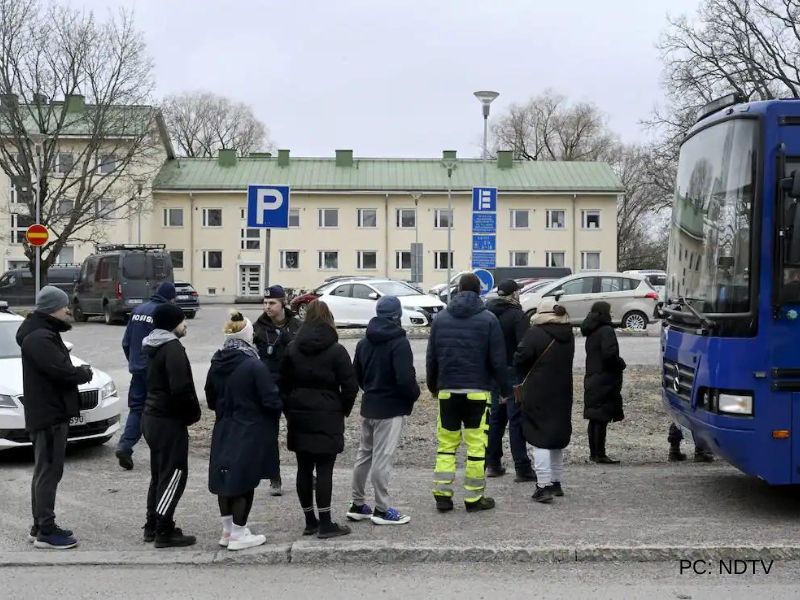Ideally, Marianne Korkalainen’s high school in Rautavaara, a tiny town in eastern Finland, would enrol at least 20 new pupils each year. This autumn, her shrinking municipality will send her only about 12. But Ms Korkalainen, the head teacher, has a plan: she intends to invite half a dozen youngsters from poorer countries to help fill her empty seats. Eager adolescents from places such as Myanmar, Vietnam and Tanzania will swap their tropical cities for her snowy bolthole. They will receive a Finnish education. At Finnish taxpayers’ expense.
School-age populations are shrinking in lots of European countries — and in Finland, faster than most. By 2030, the country could have nearly 10 percent fewer children aged 4-18, according to EU projections. By 2040, their ranks might be smaller by 20 percent. This spells trouble in particular for rural schools, which suffer from having few births and from migration to the cities. Hundreds have shut their doors in recent decades. Some now offer local youngsters incentives, such as free driving lessons and small cash “scholarships”, in the hope of retaining them.
The idea of giving vacant desks to foreigners is new, and has been propelled by a Finnish startup. Finest Future sells online Finnish lessons to eager beavers in Asian, African and Latin American countries. Those who achieve decent proficiency are referred to willing schools. By the end of this year, the firm will have helped import around 1,500 foreign pupils. But it says its goal is ultimately to supply Finland’s upper secondary schools — which educate about 110,000 students in total — with around 15,000 new students each year. Already some small schools are taking in more foreign pupils than Finnish ones.
In the long run all Finns benefit, argues Peter Vesterbacka, Finest Future’s co-founder, an entrepreneur who helped build the ‘Angry Birds’ brand for Rovio, a games company. Finland’s total population of 5.5 million will start declining within the next decade. The country struggles to attract high-skilled foreign workers (about 9 percent of its inhabitants were born abroad, one of the lowest rates in Europe). Vesterbacka reckons that foreigners who turn up when they are teenagers, who learn the language, and who are educated in the Finnish system are far more likely to stay, and succeed, than adults who are targeted later through skilled-worker programmes. He reckons they bring much more money into the country than the government must spend on their instruction.
Also read: Finland: 12-Year-Old opens fire at school, killing one
